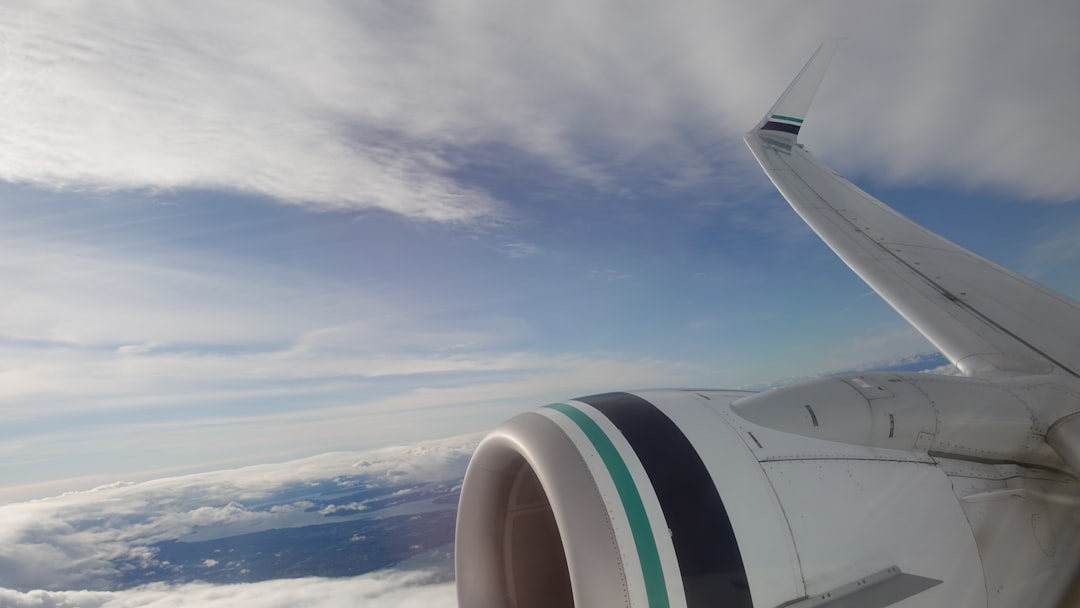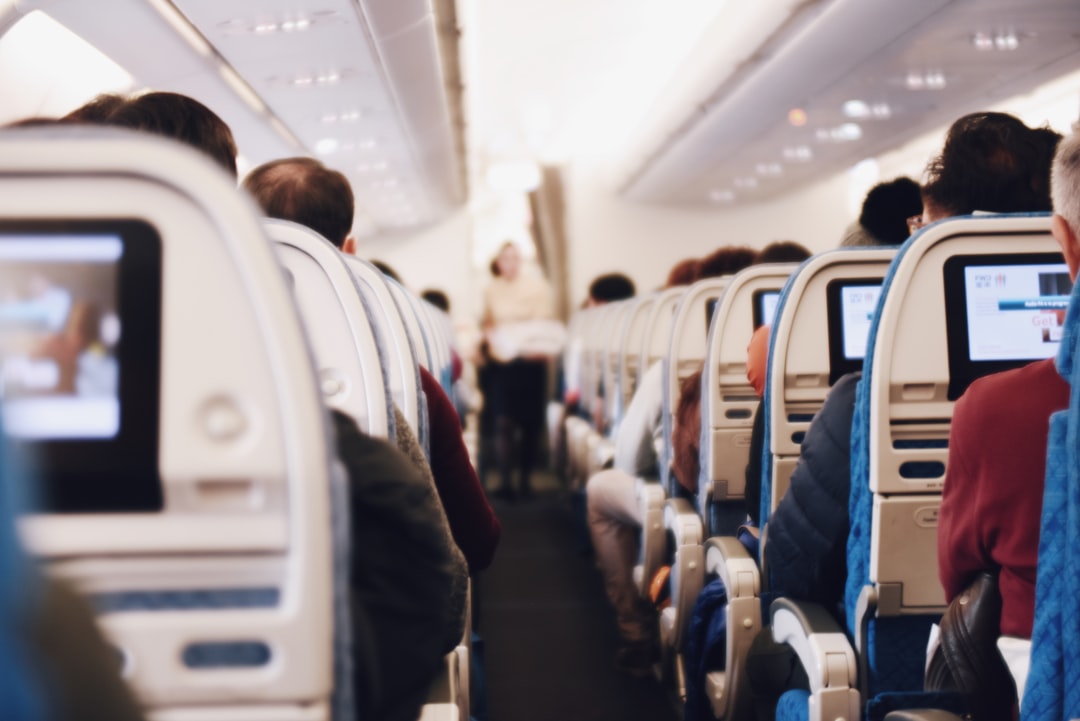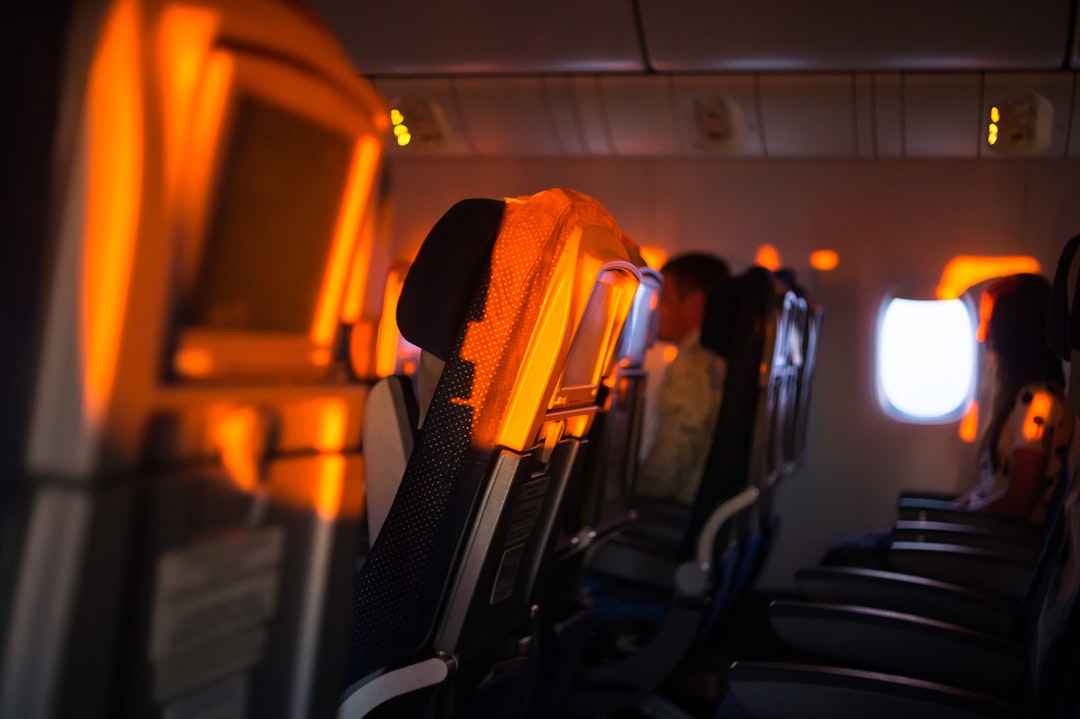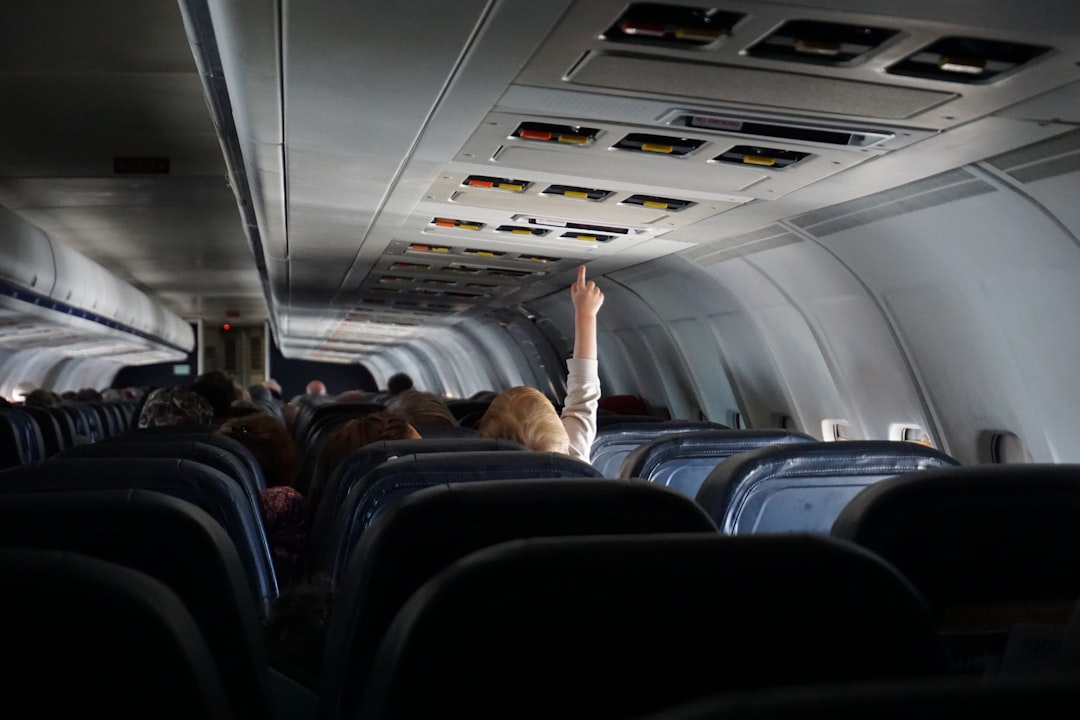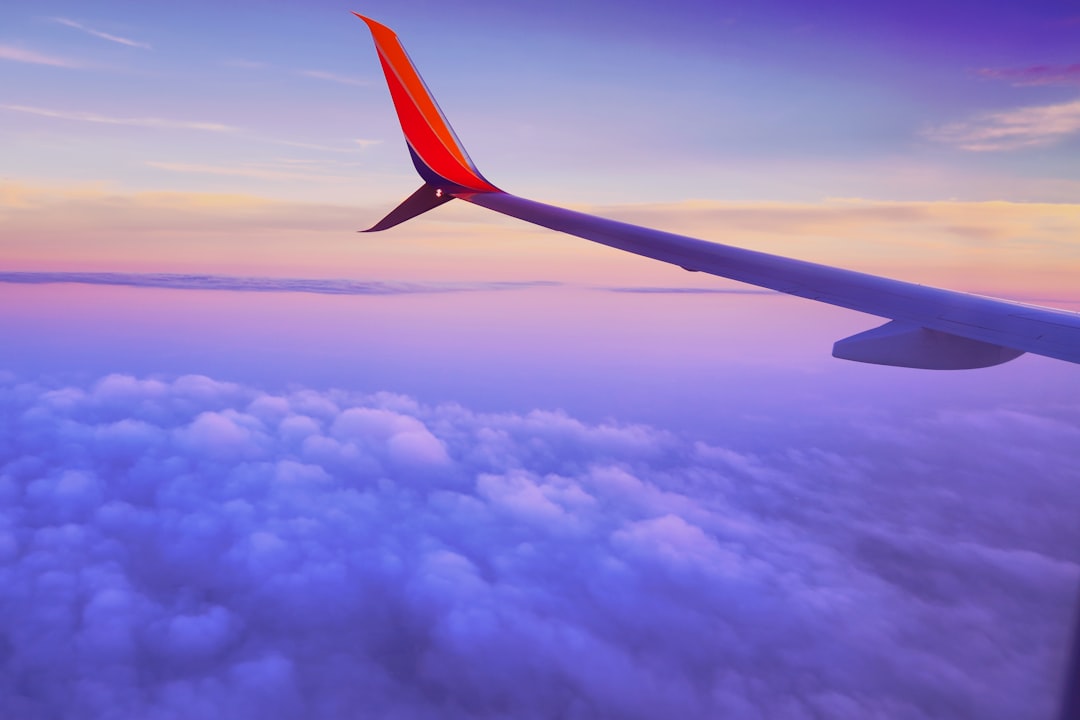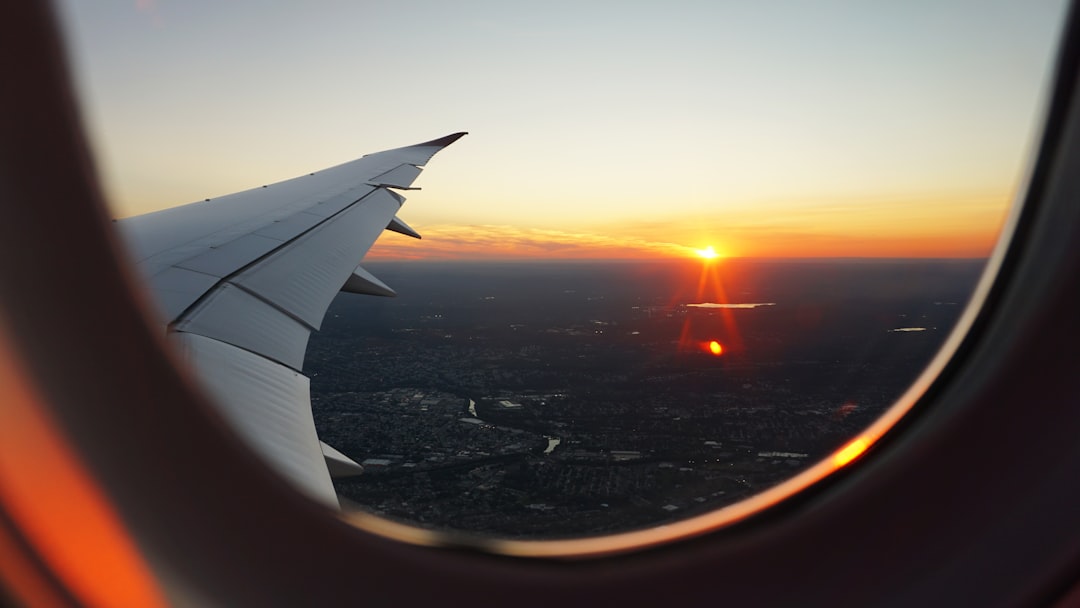Alaska Airlines' Tiered Compensation System for Flight Delays What Passengers Need to Know
Alaska Airlines' Tiered Compensation System for Flight Delays What Passengers Need to Know - Alaska Airlines' Three-Hour Delay Threshold for Compensation
Alaska Airlines has a policy where they'll only offer compensation for flight delays of three hours or more, but only if the delay is their fault. If you're unfortunate enough to be stuck, they might give you a discount code worth at least $50, good for a year, or some bonus miles. However, don't expect any cash back – Alaska Airlines has decided against that. They'll try to help you get on the next available flight if things get messed up, but some travelers might find this policy disappointing, particularly the lack of cash options.
When it comes to flying to or from Europe, Alaska Airlines has to follow EU regulations. So, if you're delayed or your flight is canceled within Europe, you do have some legal rights. What's given for compensation for delays can be anything from flight credits to discounts or miles, based on the reason for the delay. It seems people's experiences with getting compensated vary – some are happy with the outcome, while others find it inconsistent and not what they'd hoped for. Alaska Airlines' focus is on providing support during tough situations, whether that's because of a mechanical issue, weather, or ATC snafus.
Alaska Airlines' policy for compensating passengers for delays hinges on a three-hour threshold, a benchmark possibly influenced by US Department of Transportation guidelines aimed at protecting traveler rights. While the airline's rationale is unclear, the three-hour mark likely reflects a point where passenger frustration noticeably increases, affecting their satisfaction and future travel choices with the airline. It's noteworthy that flight disruption occurrences often peak in the later parts of the day, aligning with the three-hour window, hinting at a possible strategic element within their compensation policy.
Alaska's approach aligns with a broader industry trend of implementing tiered compensation structures, a concept supported by behavioral economics. However, it appears that only a small portion of eligible passengers actually seek compensation, potentially due to a lack of knowledge or understanding of their rights under these policies. Besides merely reacting to delays, Alaska attempts a proactive approach by providing updates on flight statuses, likely a tactic to mitigate passenger dissatisfaction during disruptions.
It's interesting that Alaska's compensation policy, like many airlines, largely avoids offering cash. Instead, they provide options like discounts and bonus miles. This approach is likely part of a strategy to manage costs. However, compensation approaches vary considerably across the airline industry. Recognizing Alaska's policies could be useful for passengers looking to navigate travel disruptions strategically.
Furthermore, the degree to which the airline considers itself responsible for a delay can influence the compensation provided. While mechanical problems are often within their control, other disruptions such as weather events are not, leading to differences in the assistance offered. Passengers should familiarize themselves with Alaska's policy to be prepared for potential travel disruptions and potentially adjust their travel plans accordingly. This includes allowing extra time for delays. While there's some evidence that clearer delay communication leads to fewer passenger complaints, Alaska's approach may not be the most beneficial for all travelers, requiring ongoing review and assessment.
Alaska Airlines' Tiered Compensation System for Flight Delays What Passengers Need to Know - Choice Between Discount Codes and Bonus Miles for Lengthy Delays
When faced with substantial flight delays, Alaska Airlines offers travelers a choice between receiving a discount code or bonus miles as compensation. Cash refunds aren't an option, a practice common among many airlines likely aimed at cost management. The compensation structure is tiered, with the value of the bonus miles varying based on your Mileage Plan status. This means MVP members get a smaller mileage bonus compared to higher-tier members, who earn more. Discount codes, on the other hand, offer a potentially significant discount on future travel but can be limited in their flexibility or usage.
Deciding between these two options requires careful thought as their value will differ for each person. It hinges on a traveler's individual future flight plans and the likelihood of actually utilizing the discount code. Furthermore, it's important to remember that whether or not Alaska even offers any compensation is dependent on whether they deem themselves responsible for the delay in the first place, making the process even more nuanced. It's a balancing act between receiving immediate value and thinking strategically about the best option to align with your travel habits.
When faced with a lengthy delay resulting in Alaska's compensation, travelers are presented with a choice between discount codes and bonus miles. Discount codes offer immediate savings on future flights, while bonus miles accrue towards future travel rewards, like free flights or upgrades. This decision hinges on passenger preference and the perceived value of immediate versus future benefits.
It's plausible that, due to the way people naturally think about things, folks might favor the immediate gratification of a discount code over the promise of bonus miles down the line. This idea is backed up by how people tend to value things more when they get them sooner. A discount code directly lowers the price of their next trip, which can be a more appealing proposition for many compared to the long-term accrual of miles.
Airlines like Alaska likely have a good understanding of how customers make these decisions, and there might be reasons why they push bonus miles more than discounts. Offering bonus miles might be a smarter way for them to manage costs, as it might lead to more customers flying with them in the future, rather than simply giving cash refunds.
However, there's a flip side to this. If someone's nearly earned enough miles for a free flight, getting only a few bonus miles could be frustrating. It highlights that sometimes, miles are just not as useful or satisfying for some travelers as simply getting a portion of their money back.
It's interesting to think about how airlines use this strategy to manage costs. Paying out cash for delays would be a direct expense. On the other hand, if someone gets extra miles, the airline may see it as a future investment in their loyalty. This highlights the strategy behind offering miles over cash payouts in times of disruption.
On top of how people value these choices, the way Alaska talks about the rewards is really important. Passengers frequently report confusion about the real value of bonus miles compared to how much a discount code saves them. This confusion makes it clear that being transparent with passengers about the different ways they can be compensated is a vital step to keeping them happy.
The rules around compensating passengers for flight delays differ across airlines. While Alaska Airlines' policies are better than some, they may not entirely meet the expectations of travelers accustomed to carriers that provide cash refunds. This shows how even seemingly positive actions by a single airline can be seen differently depending on people's personal experiences with others.
How fairly a person feels they've been treated during a flight disruption is crucial to their satisfaction with the airline. Alaska should be mindful of this human factor to build strong relationships with their customers and encourage repeat business even after frustrating delays.
Lastly, there's a growing trend showing that loyal customers are more willing to tolerate delays if they know they'll get a miles reward. This connection between loyalty programs and passenger tolerance emphasizes how crucial these programs are to managing and mitigating frustration and uncertainty within the travel experience, particularly during periods of service interruptions.
Alaska Airlines' Tiered Compensation System for Flight Delays What Passengers Need to Know - Tiered Refund System Based on Flight Conditions
Alaska Airlines' approach to compensating passengers for flight delays is based on a tiered system linked to specific flight conditions. They primarily offer compensation when delays exceed three hours and are deemed to be the airline's fault. Instead of cash refunds, which are absent from their policy, passengers are given a choice between a discount code or bonus miles. While aiming to satisfy passenger needs during disruptions, this system has met with mixed reactions, primarily due to its reliance on non-cash forms of compensation.
The value of the compensation received depends on factors like the length of the delay and the passenger's status within Alaska's Mileage Plan program, leading to a complex system that might not meet some travelers' expectations. While this system is in line with trends in the airline industry, the heavy emphasis on miles or discounts, rather than a cash refund, can be a source of frustration for those who value a more immediate and direct financial solution. The effectiveness of this system hinges on clear communication about the terms of the compensation, which can then help manage traveler expectations and enhance overall experience when a flight is disrupted.
Alaska Airlines' tiered refund system, where the type and amount of compensation are based on the length of the delay and the cause, is a fascinating example of how airlines try to balance passenger satisfaction with their own financial health. The system seems to be built on the idea that people feel the sting of losing money more than they feel the joy of gaining something of equal value—a concept called "loss aversion" in psychology. This might be why they lean towards offering discounts or miles instead of cash.
Research suggests that people get more satisfaction from rewards they get right away, like a discount code, than they do from things they have to wait for, like bonus miles. This "instant gratification" preference might be influencing Alaska's decision to emphasize discounts in some cases. It's also likely that airlines in general, and Alaska specifically, are trying to avoid the risk of large cash payouts. They likely want to keep a tighter hold on their cash flow and reduce the chance of fraud or large financial losses.
It's interesting to note that these tiered compensation systems, which are becoming common in the airline industry, seem to have a different impact on different types of travelers. Studies show that customers who are part of frequent flyer programs and have accumulated benefits are more likely to stick with an airline even after delays. This suggests Alaska's tiered system might encourage some level of passenger loyalty over time.
Furthermore, the idea of "anchoring" could play a role in how people judge the worth of the compensation. For example, if someone is accustomed to only receiving bonus miles as compensation, they may undervalue a cash refund when offered. It is also likely that these tiered systems are also a way to manage risks. Alaska, by giving out points and discounts instead of cash, might be able to better guess how much money they might have to spend on refunds or other forms of compensation, keeping potential financial liabilities in check.
One point to consider is that the bonus miles that Alaska offers might not be as useful as they initially seem. The value of these miles can go down over time if they expire, which is pretty common in airline loyalty programs. This can make a discount code that can be used quickly seem much more appealing if a traveler has a trip coming up soon.
We know that delays exceeding three hours frequently result in a greater number of flight cancellations. Alaska's decision to offer compensation only after three hours aligns with this observation. By stepping in and providing some sort of compensation, they hope to head off any passenger anger and encourage customer loyalty before dissatisfaction with the service reaches a point of no return.
The tiered system also seems to reward those who are already more loyal to the airline. Higher-level Mileage Plan members get a greater number of bonus miles, which adds to a sense of exclusivity and benefits those who have invested the most time and money into the Alaska Airlines ecosystem. This idea of loyalty tied to specific benefits may help create stronger connections between travelers and the airline.
Alaska’s decision to lean towards non-cash compensation also fits in with a broader trend in the industry. Airlines find that cash refunds are hard to manage due to the costs involved and the chance of fraudulent claims. So, they are actively looking into alternative methods for making things right when flights are disrupted.
While Alaska Airlines is not unique in offering these kinds of tiered systems, their approach highlights a complex interplay of passenger psychology, cost control, and risk management. They've made a conscious effort to address passenger frustration while staying financially sound, which will likely continue to be a major goal as the airline industry continues to evolve.
Alaska Airlines' Tiered Compensation System for Flight Delays What Passengers Need to Know - Two-Hour Delay Policy and Maximum Refund Cap
Alaska Airlines' tiered compensation system includes a two-hour delay threshold, meaning compensation is only considered for delays exceeding three hours and are determined to be the airline's fault. When a delay meets these conditions, travelers can choose between a discount code (at least $50) or bonus miles, but cash refunds aren't part of the program. Further complicating matters, refunds are only available if the ticket was bought directly through Alaska Airlines and adheres to certain rules. This policy, although likely intended to manage costs, might be frustrating for passengers who'd prefer to receive cash back for disruptions. It's essential that Alaska Airlines is completely transparent about these policies to ensure passengers understand the specifics and don't have unrealistic expectations when dealing with delays.
Alaska Airlines' two-hour delay policy, while seemingly generous, seems to be tied to research showing a sharp increase in passenger frustration after a three-hour delay. It's possible that this two-hour mark is a strategic move to minimize complaints before things get really bad.
Their cap on refunds, mostly in the form of non-cash rewards, is likely a result of how people generally think about rewards and money. Studies show that many people prefer larger, non-cash rewards over smaller cash payouts, even if the rewards aren't immediately useful. This might encourage repeat business and build loyalty among frequent flyers.
The compensation system isn't just about how long the delay is; it also considers what caused it. Alaska clearly distinguishes between delays due to their own actions and those caused by things like bad weather. Delays caused by outside forces won't get you any compensation. This distinction means that it's vital for passengers to understand the situation and why they might or might not be eligible for some sort of help.
Interestingly, roughly a quarter of eligible passengers don't actually seek compensation, mainly because they don't know they have the right to it or because the compensation options are complicated. This shows a gap in communication and transparency on Alaska's part.
Their use of discount codes instead of cash is a common trend in the airline industry. It's a way to turn what might be a large cash payout into future business. This approach ties compensation to future travel bookings rather than facing immediate financial risks.
The tiered system for bonus miles serves a double purpose. It rewards loyal customers and potentially limits the airline's risk of having to pay out a lot of cash at once. This means it's likely designed to maintain financial stability while still trying to please customers.
Research suggests that people are happier when they get compensation quickly, even if it's not the maximum amount of money. This supports Alaska's strategy of offering discount codes right away, which likely helps maintain a positive relationship with customers, even when facing delays.
Studies about frequent flyer programs show that passengers who feel fairly compensated are more likely to stay loyal to an airline. Alaska's decision to offer bonus miles instead of cash could be part of a strategy to build strong, long-term relationships with their customers.
Alaska is one of a few airlines in the US that has a detailed compensation plan tied to delays. This suggests a growing understanding in the industry that passengers expect something when their flights are disrupted.
The reasons behind the lack of cash refunds likely include a desire to limit the possibility of fraud. Miles and discount codes are more difficult to manipulate compared to cash, thus safeguarding the airline's finances and making it easier to process passenger claims.
Alaska Airlines' Tiered Compensation System for Flight Delays What Passengers Need to Know - Rebooking Process on Next Available Flight
When your Alaska Airlines flight gets delayed or canceled, they'll try to get you on the next available flight. They'll even handle the hassle of connecting flights with other airlines if needed. It's a service intended to minimize your travel disruption. They state it will be at no extra cost, however that doesn't always mean no aggravation or cost to you to rearrange your travel plans because of the delay. Alaska will try to get you on the next available flight of theirs or one of their partner airlines. This is designed to keep the travel process moving, but may not satisfy everyone's needs. While it's a step toward helping travelers, it can sometimes feel inadequate, especially when compared to other airlines who offer straightforward cash reimbursements when things go sideways. The focus on rebooking without giving cash back may seem less than ideal for travelers who want a quick and easy financial solution. Understanding that they generally don't offer cash compensation is critical for passengers to decide if this is an airline to fly.
When an Alaska Airlines flight gets delayed or canceled, they'll try to get you on the next flight available. This includes managing connections with other airlines if your trip involves multiple flights. This is a handy feature, but the question of how well it works, especially for travelers with complex itineraries, remains open for study.
If your flight is seriously delayed, they won't give you cash, but they'll offer a discount code (at least $50) or bonus miles, which is a common tactic across airlines to manage costs and encourage future travel. The value of these perks varies by your loyalty program status (e.g., MVPs get fewer miles than higher-tier members), which is something that could potentially create confusion for those wanting a simpler process. Discount codes seem like a good option if you have a trip on the horizon, but their limitations in terms of when and how you can use them could be problematic for some travelers.
It seems many people who are eligible for compensation don't actually claim it. This could be because the options are confusing or they aren't aware they have rights. The process could potentially be streamlined and made clearer for the traveler.
The absence of cash compensation is likely a strategy to keep financial risks lower for the airline. They'd rather have you use a discount for a future trip than deal with the immediate cost of a refund. It's worth noting that some travelers might be disappointed with the absence of a cash option as it's still common for many people to prefer a quick cash refund.
There's also a psychological element at play here. Prior experiences shape our views, which means frequent flyers might feel a little more comfortable with miles as compensation than new passengers might. For instance, if you typically receive miles as compensation, you might feel like a cash refund isn't a big deal. This idea of psychological "anchoring" in how people see value is really relevant here.
Their approach to delay compensation also varies slightly depending on the reason for the delay. Mechanical issues are more likely to result in a refund or benefit compared to disruptions due to weather, which they consider out of their control. This is an important distinction to consider because it is directly tied to what they are likely to provide.
Furthermore, Alaska's system seems to reward those who are more loyal to the airline. Higher-tier members of their loyalty program get a larger reward, which might make them more willing to deal with a delay knowing that they are getting something back that is valuable to them. This is also a smart strategy for the airline because it helps build and incentivize loyalty.
While Alaska isn't alone in providing compensation in the form of discounts or miles rather than cash, their policy showcases how airlines are attempting to balance the costs associated with disruptions while still working to keep their customers happy. They likely continue to study and assess their approaches as passenger expectations and the industry as a whole change over time.
Alaska Airlines' Tiered Compensation System for Flight Delays What Passengers Need to Know - Assistance with Onward Travel on Separate Tickets
If your Alaska Airlines flight is delayed or canceled and you have a connecting flight booked on a separate ticket with another airline, things can get tricky. While Alaska Airlines generally aims to get you on the next available flight, this can be more complex if it involves another airline. Even though they're willing to help you rearrange your travel with other airlines, there's no guarantee of a smooth experience. This is where the complications start, especially if your trip involves several different flights or airlines. Passengers with this situation need to be assertive and ask for assistance; Alaska will try to help, but outcomes depend on the delay. On top of this, the compensation options, which often don't include getting money back, might not satisfy everyone. People who prefer a simple cash refund might be disappointed. All things considered, understanding the complexities of Alaska Airlines' policies ahead of time and being prepared for delays is important, especially when your travel plans span several tickets. It can make a difference in how much stress you experience if your flight is delayed or canceled.
When your travel plans involve multiple flights booked on separate tickets with Alaska Airlines, things can get tricky if delays occur. Alaska Airlines typically doesn't have agreements with other airlines to help you with rebooking or finding a place to stay if your flight is delayed, unlike when you're traveling on a single ticket. This can lead to unexpected problems and costs if you miss a connection on a flight that's on a different ticket, especially because Alaska Airlines may not cover any of the extra expenses you might incur for rebooking.
While Alaska Airlines tries to put you on the next flight available when there's a delay, this promise mostly covers their own flights or those of airlines they partner with. If you're on separate tickets, you might have to sort out getting onto another flight yourself. This can be confusing for many travelers since it isn't always clear that buying multiple tickets comes with this level of responsibility in the event of a delay.
It's not just about the length of the delay; whether Alaska Airlines feels they're responsible also plays a role in what kind of help they offer. The three-hour threshold they've set seems to reflect a point where passenger complaints rise sharply. This suggests that the threshold could be based on passenger behavior during delays. If your flight is delayed on a separate ticket, it's important to know if Alaska considers the reason for the delay to be their fault, as this will determine whether you might get any kind of compensation.
It's worth thinking about getting travel insurance when you're traveling on separate tickets, especially given the potential for delays causing additional expense and the limited assistance that the airline might give. This could cover some unexpected costs and complications if Alaska Airlines is unable to help.
What people think is fair can really affect their feelings about the airline, especially when it comes to dealing with delays. Alaska Airlines needs to strike a balance here so they don't lose loyal travelers, and that includes figuring out the best approach for when people are traveling with tickets on different airlines.
To avoid confusion, Alaska Airlines should provide clear information about how separate tickets work during delays. Giving passengers a heads-up about what they can expect when things don't go as planned is a smart way to keep things smooth and minimize frustration if a flight is delayed and their connections are on a separate ticket.
Essentially, understanding how Alaska Airlines handles onward travel booked on separate tickets is vital, especially if delays or cancellations occur. It's a good idea to prepare for the possibility of having to handle things yourself, or look into travel insurance to give you a backup plan. With a bit of awareness, you can mitigate potential disruptions and plan accordingly.
More Posts from aiflightrefunds.com:
- →Severe Weather Causes 350 Flight Cancellations Across US, 137 at LaGuardia Airport
- →American Airlines' 15-Minute Rebooking Policy A Lifeline for Passengers Who Missed Their Flight
- →Air Dolomiti Flight Delay Analysis 2023 Italian Regional Carrier Records 23% Disruption Rate on Munich Routes
- →The Sweet Spot Booking Flights 6-8 Weeks Ahead for Optimal Savings
- →Navigating the 2024 TSA Liquid Rules What Sealed Drinks Can You Bring Through Airport Security?
- →Understanding EU Flight Delay Rules When 2-Hour Delays Trigger Passenger Rights
